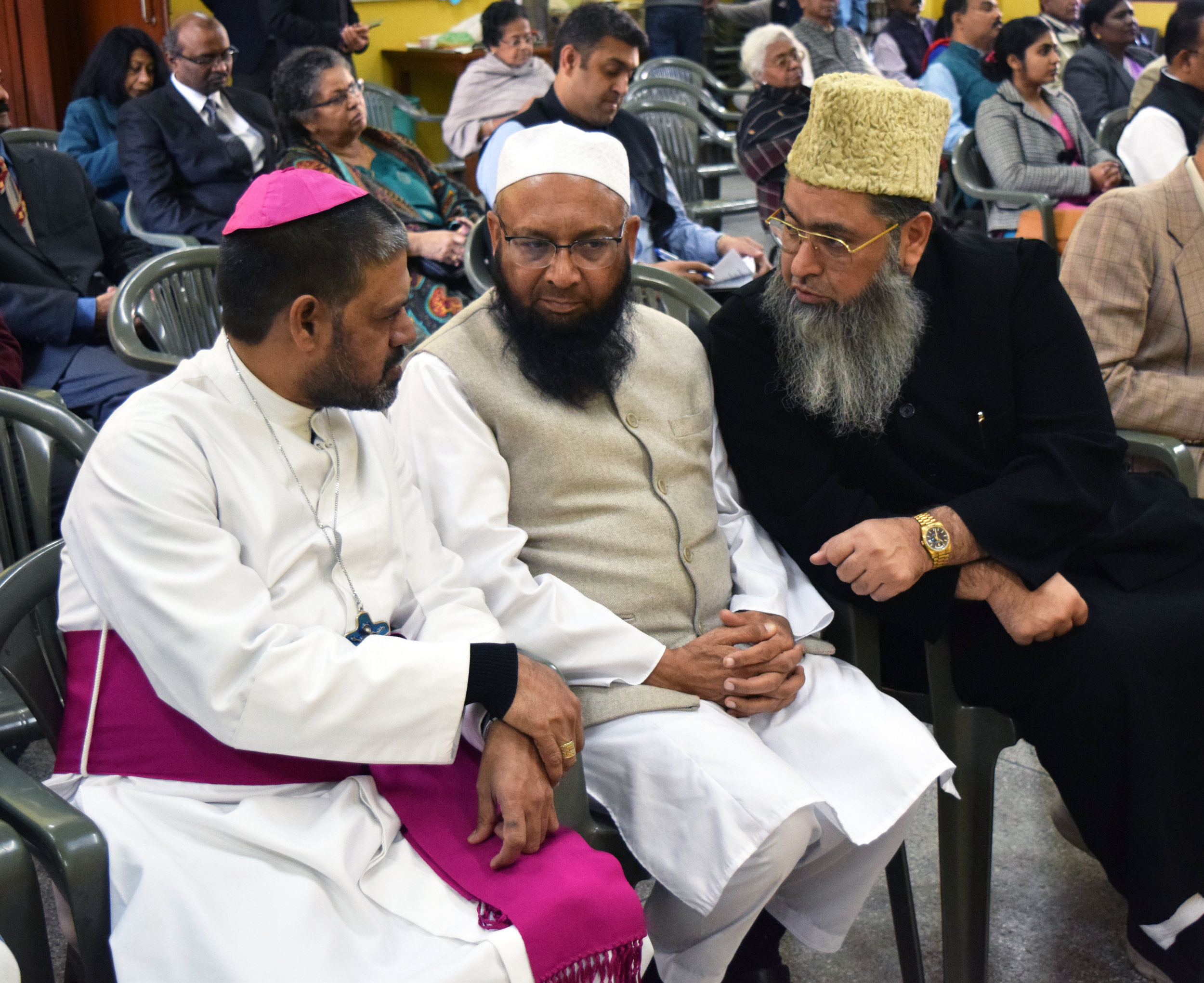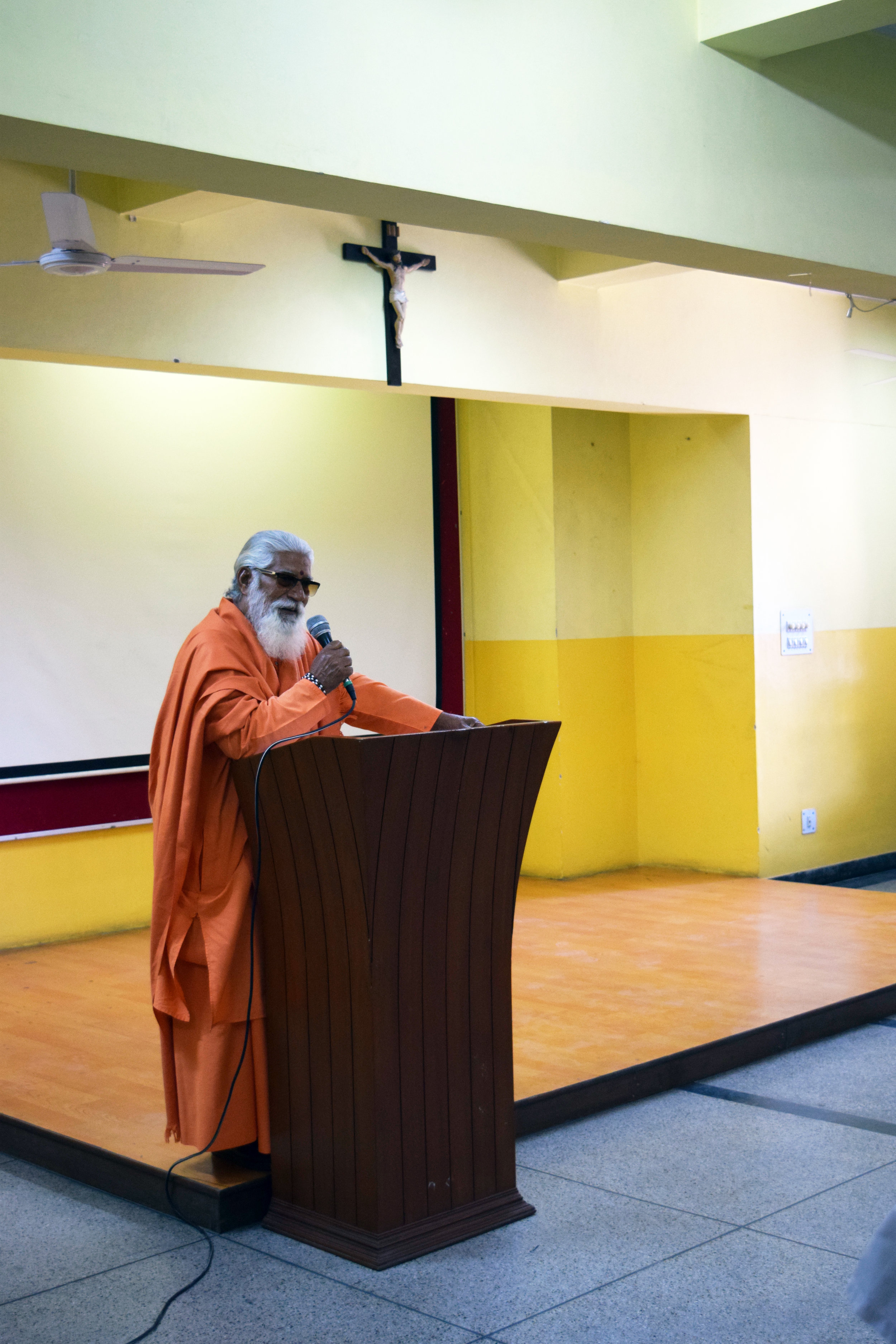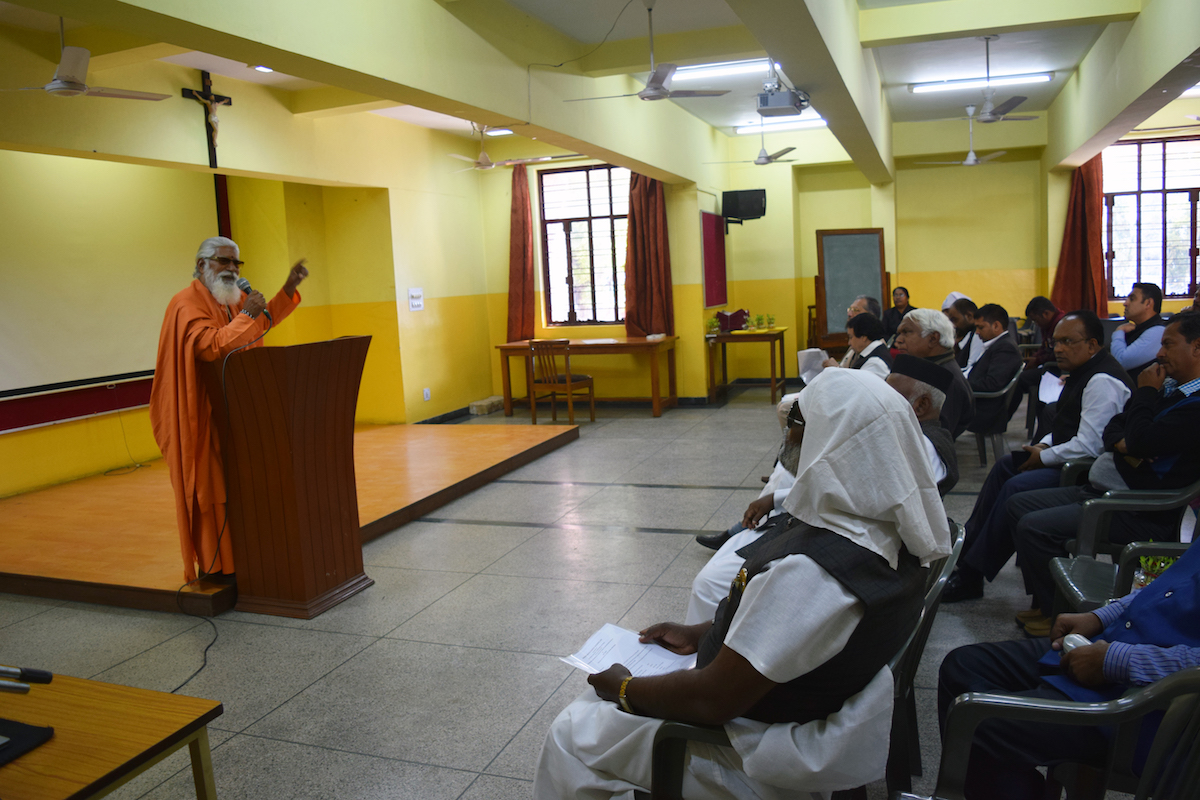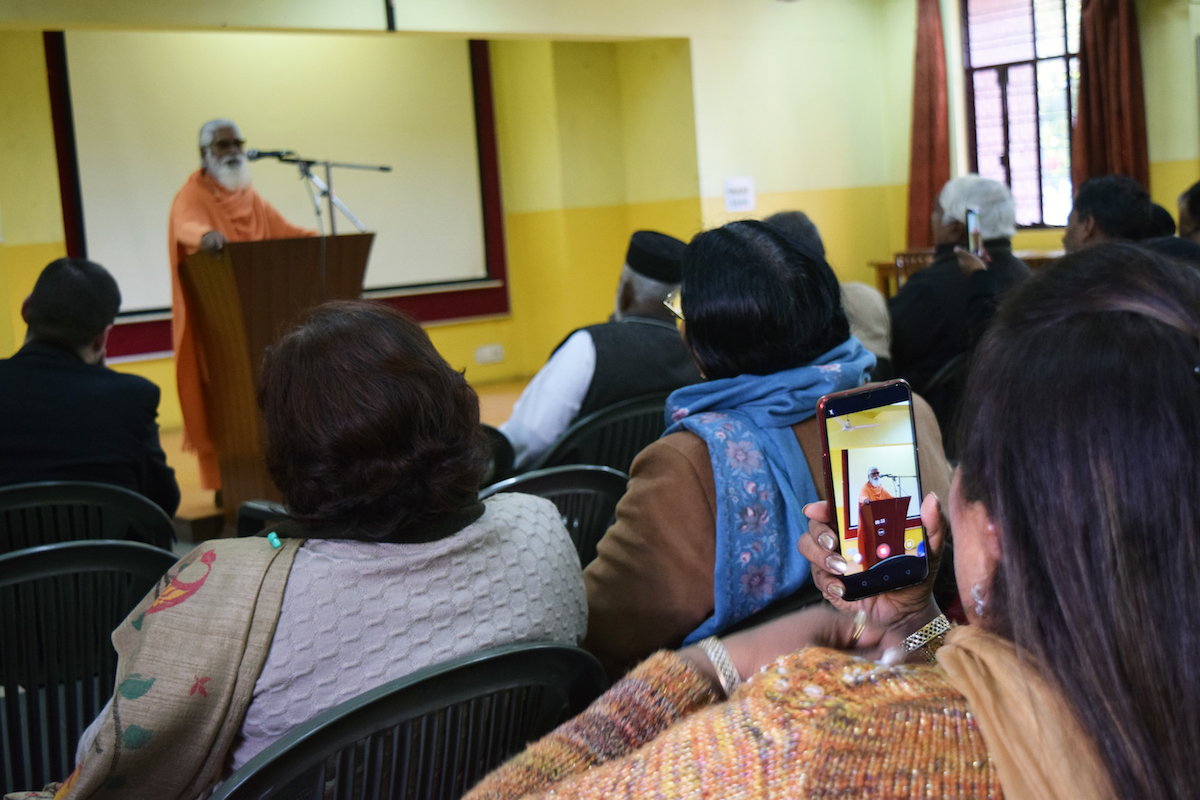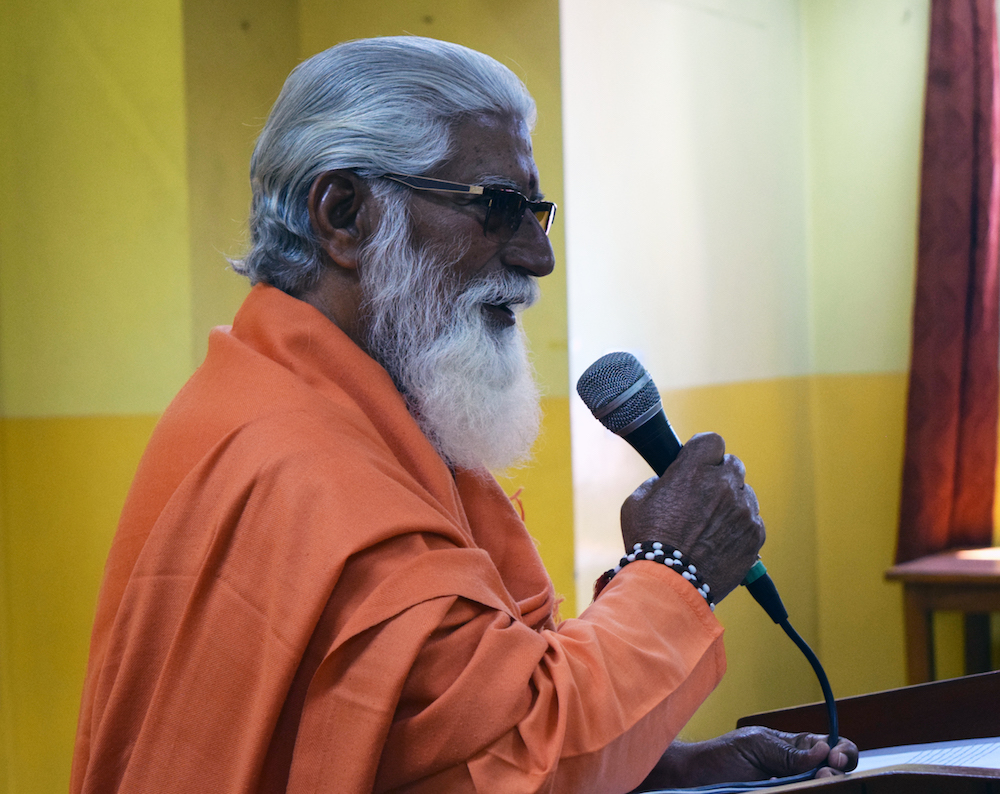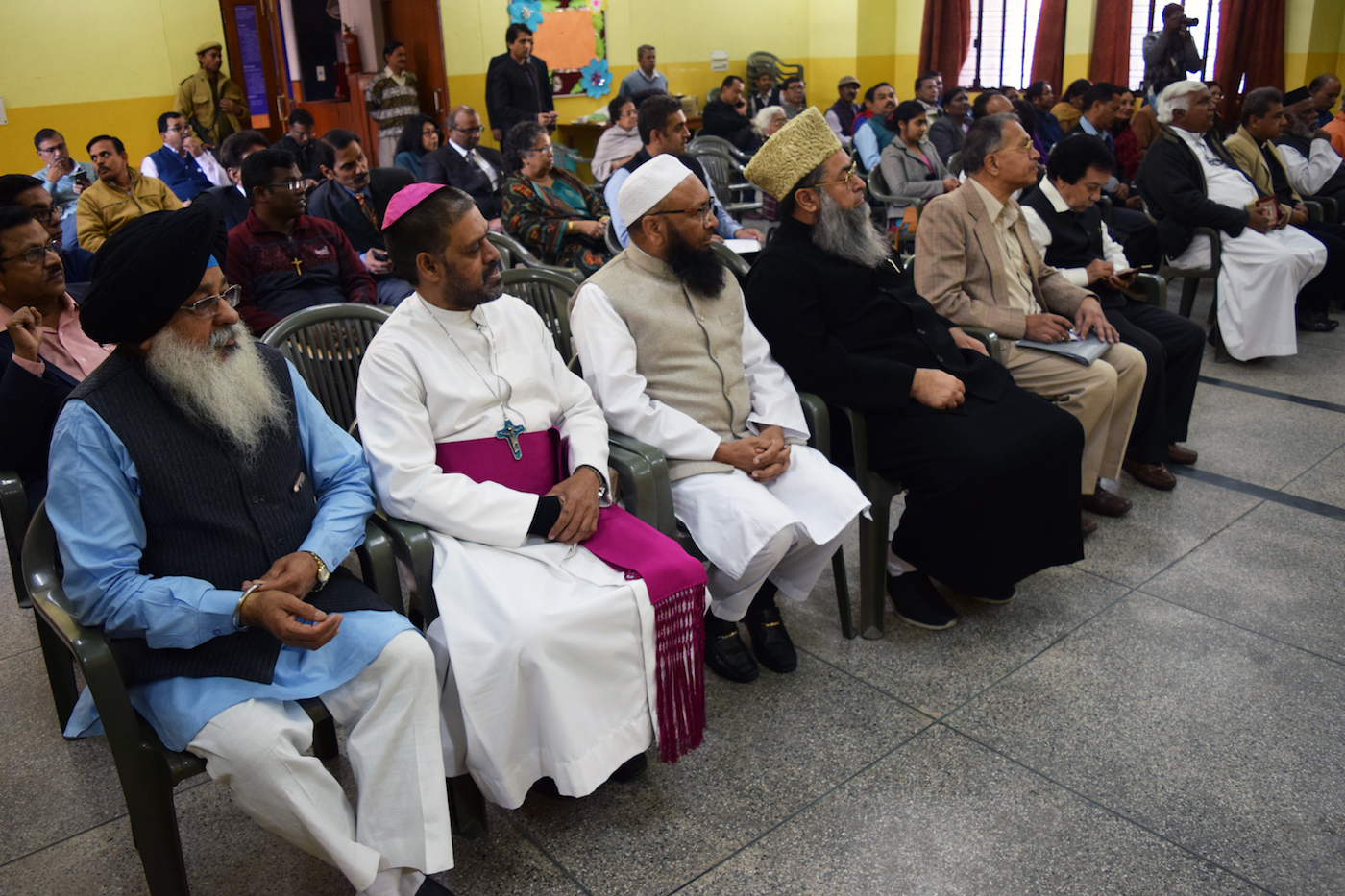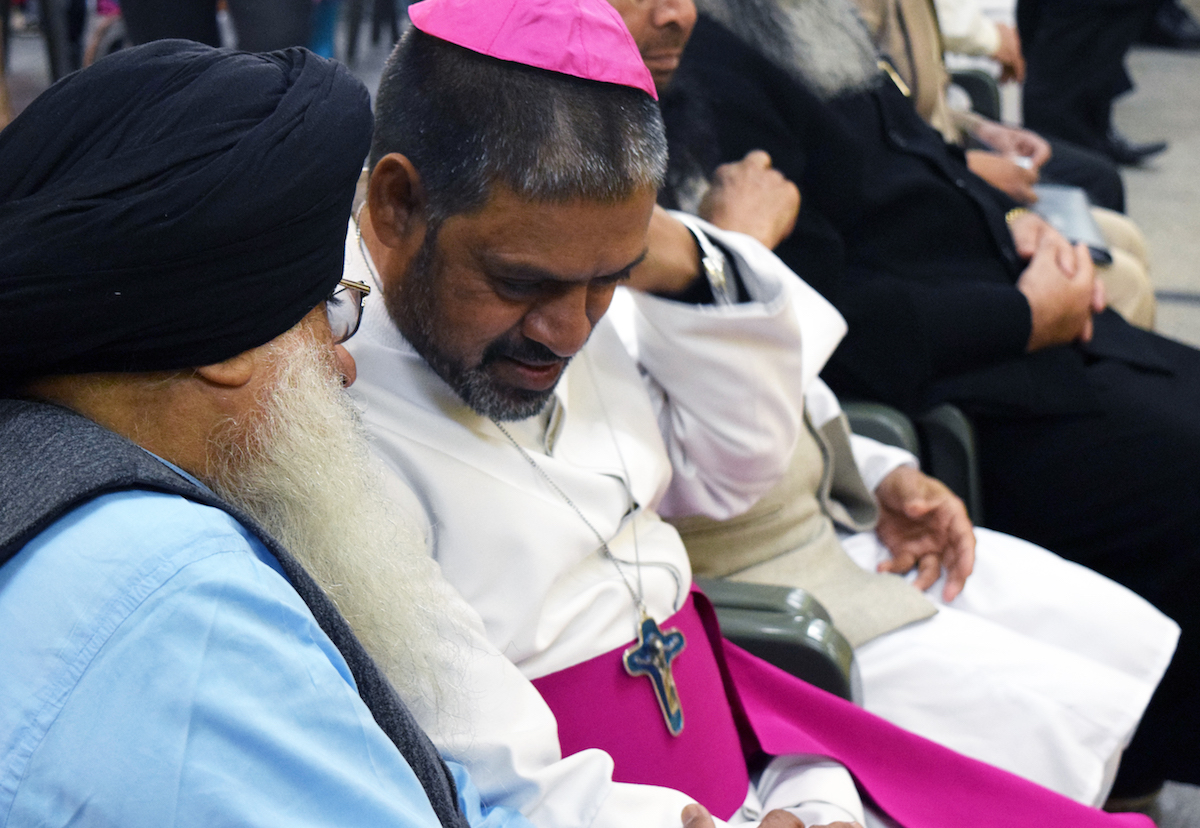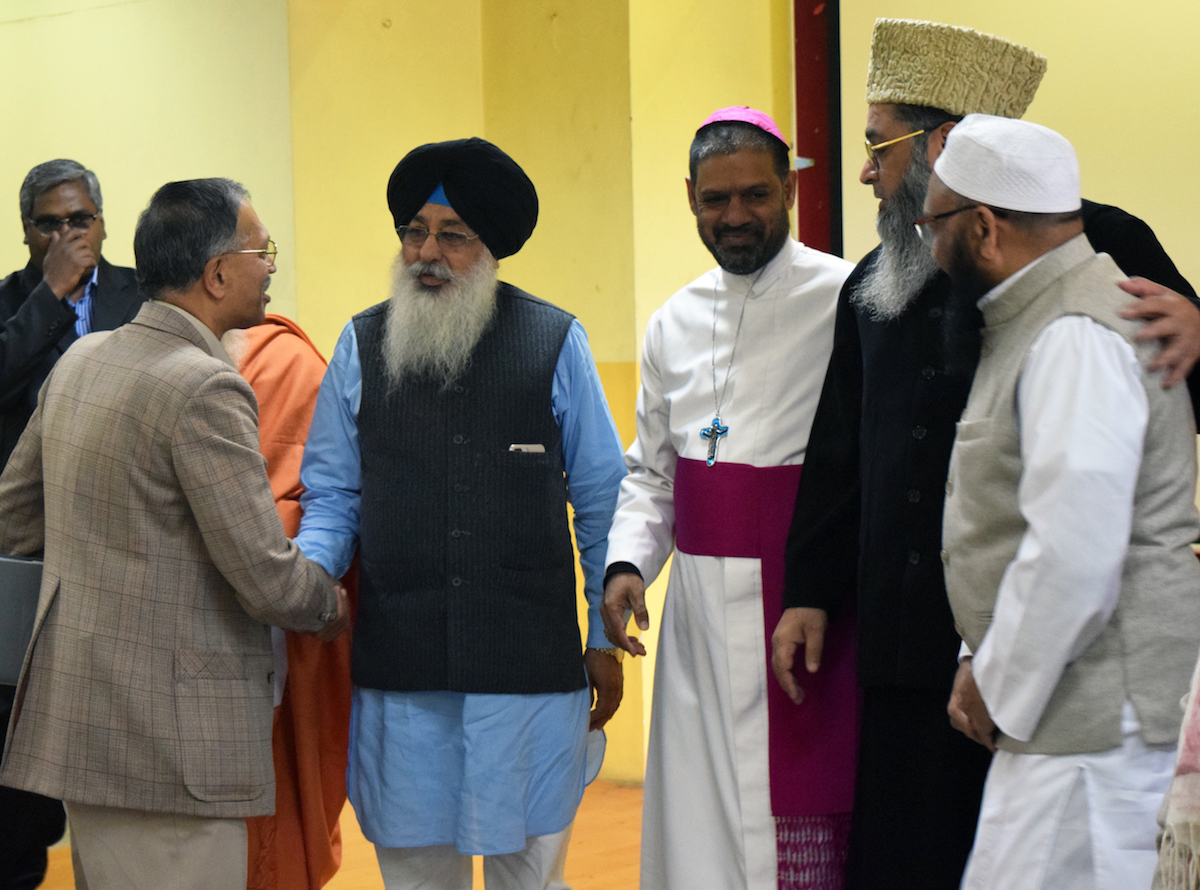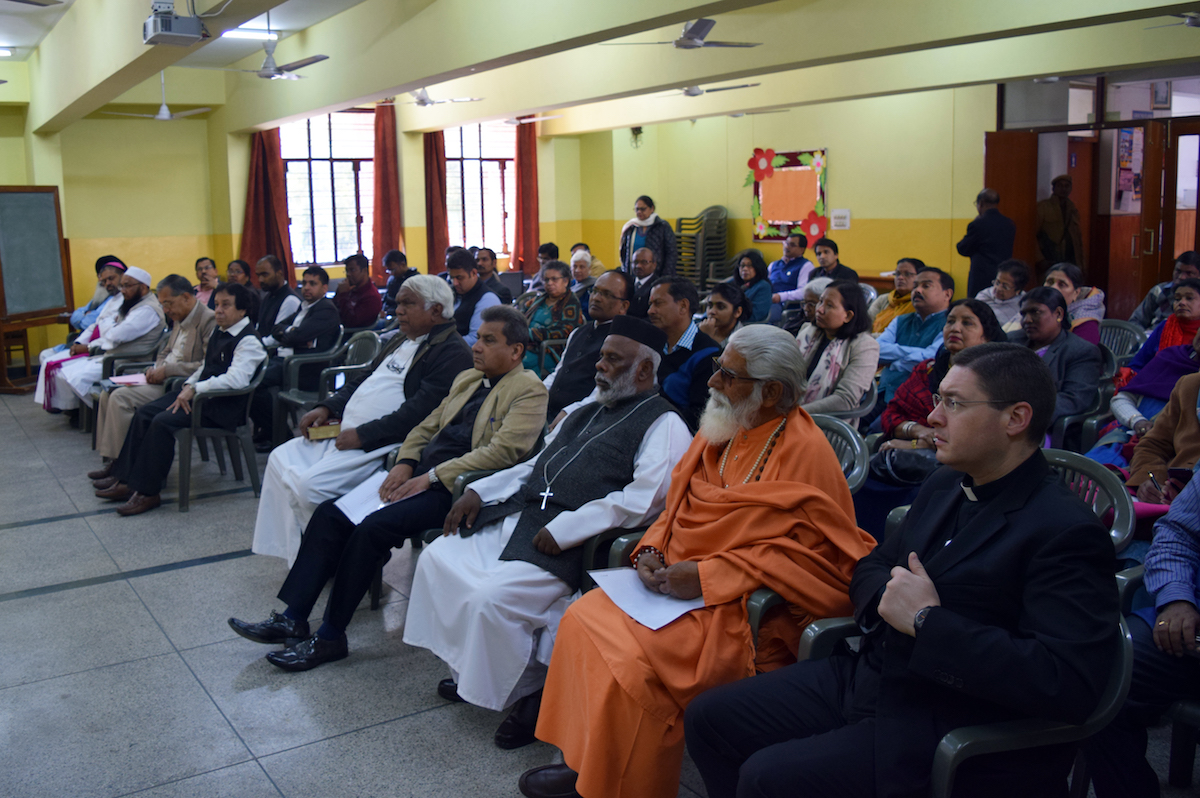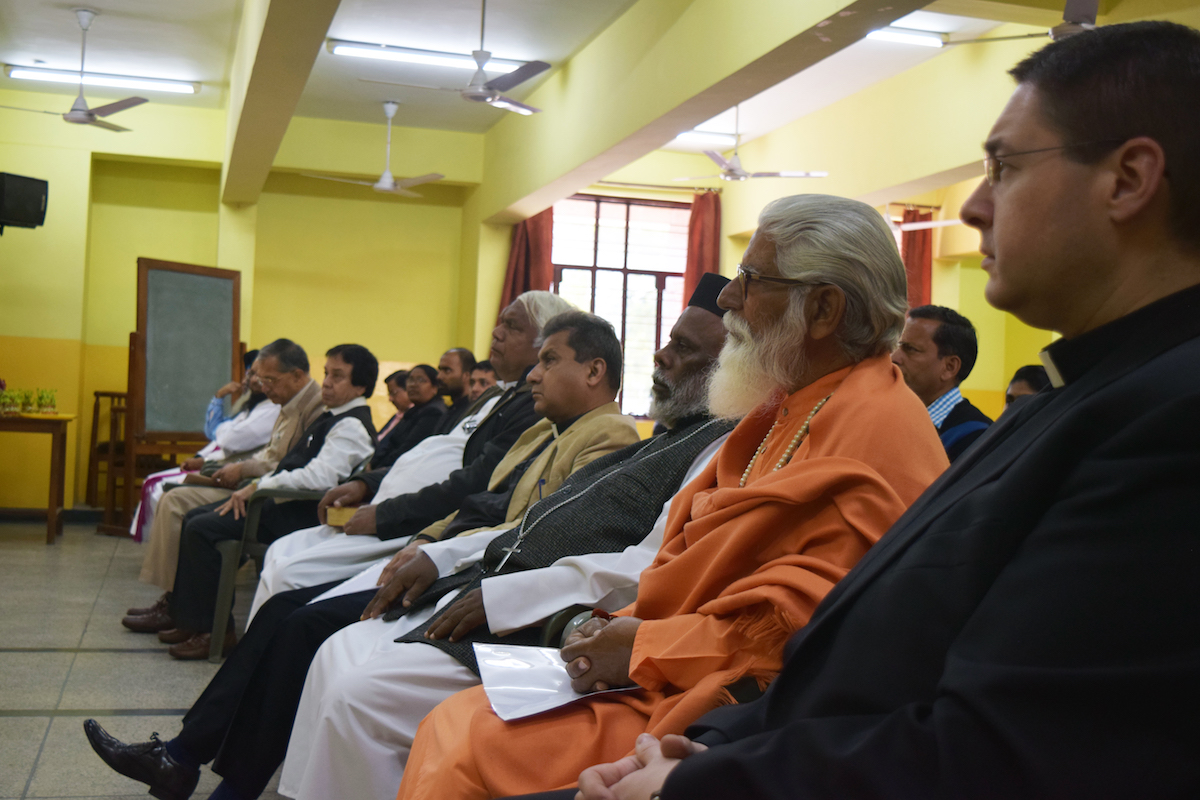Indian faith leaders sign pledge to promote harmony, defend religion
Swami Veer Singh Hitkari ji Maharaj of the Ravidassia faith speaks to those gathered at Sacred Heart Cathedral’s campus in Delhi on Feb. 23, 2019.
NEW DELHI— Ten leaders representing seven faiths convened Saturday at the Sacred Heart Cathedral campus, the seat of the Catholic Church in India’s capital, to discuss interfaith harmony amidst rising religious violence in India.
The Catholic Bishops’ Conference of India hosted the summit with the archdiocese and Alliance Defending Freedom India, just a few weeks after Pope Francis and the grand imam of Egypt Al-Alzhar Sheikh Ahmed al-Tayeb called for world peace and understanding. India’s Prime Minister Narendra Modi has not yet invited Pope Francis to visit, a diplomatic necessity since the Vatican is a sovereign state, and the bishop present did not comment on the ongoing crisis of sexual abuse victims asking the Catholic Church for justice globally and domestically.
The religious leaders, of Hinduism, Islam, Sikhism, Ravidassia, Judaism, the Bahá'í faith and Christianity, signed a resolution to “work towards promoting religious, cultural understanding, peace, harmony and cooperation” in India.
Dr. Umer Ahmed Ilyasi, an imam and president of the Imam Council of India, signs the declaration organized by the Catholic Bishops’ Conference of India.
“We further resolve to promote interreligious and intercultural dialogue to sort out the differences among ourselves and to eliminate intolerance and discrimination based on religion or belief,” the declaration reads.
Ravidassia was founded in the 21st century out of Sikhism and based on the teachings of a guru named Ravidas, and the Bahá'í faith grew out of Iran and the Middle East in the mid-19th century, teaching that the world’s major religions are all manifestations of God with the same purpose.
Acharya Sushil Goswami Maharaj, an artist and head of a Sanatani Hindu monastery (considered a more traditional sect of Hinduism), gave a keynote speech, calling upon religious leaders to exercise their responsibility to teach their followers with humility and a sense of duty. Maharaj is also the national president of the Parliament of All Religion, an Indian organization that promotes religious tolerance and peace.
“We have one Constitution as a foundation for the rule of law,” Maharaj said. “As Indians, we should not let anything divide us.”
Mob lynching, carried out by Hindu extremists especially against Muslims accused of eating beef, has increased since 2014 and 2015, according to media reports attempting to track the incidents. Killing cows or consuming beef is illegal in most Indian states, and Hindu nationalists have used the beef bans as justification for beating and killing suspected Muslims on the street.
The data journalism website India Spends found that Muslims made up 51 percent of victims of cow-related violence from 2010 to 2017 and 84 percent of the victims killed, with 97 percent of the attacks happening after Modi’s election and the rise of his Bharatiya Janata Party (BJP) in May 2014.
Dr. Umer Ahmed Ilyasi, an imam and president of the Imam Council of India, spoke about India’s 1984 Sikh massacre, where in response to then-prime minister Indira Gandhi’s assassination by her Sikh bodyguards, thousands of Sikhs were killed in mob attacks. Ilyasi also denounced the 1994 murder of Australian Christian missionary Graham Staines and his children by Hindu extremists.
“We are all human despite our diversity and differences,” Ilyasi said. “The mob is inhuman, satanic… The fringe element that exists in every community, let it remain fringe, that small minority that instigates pain and violence.”
Sardar Paramjeet Singh Chandok (left), a prominent Sikh and chairman of the Bangla Sahib Gurudwara, speaks with Catholic Bishop Theodore Mascarenhas (right) at the interfaith summit in Delhi Feb. 23, 2019.
Sardar Paramjeet Singh Chandok, chairman of Bangla Sahib Gurudwara, one of Delhi’s most prominent Sikh houses of worship, said: “Universal brotherhood and service to all is the calling each of us should have. This will continue to be a land of peace if we resolve to stand together as one.”
Rev. Monsignor Susai Sebastian, a Vicar General of Delhi’s Catholic Archdiocese, talked about the need for people to first understand their respective faiths well.
“Religious leaders have the duty of instructing people in their own faiths, to understand what their faith really is, to understand the nuances and to understand what is faith and what is religion,” he said.
“Anything that preaches hatred is not religion,” Rev. Sebastian said.
“People are led to believe that religious people are communal, but we are not,” he added.
In India, the term “communalism” refers to frequent episodes of violence between two groups, usually based on religion, caste, specific ethnicity based on region, or a mix.
Rabbi Ezekiel Isaac Malekar asked why the term “non-violence” is used when it emphasizes violence. “Love is a better word,” he said, quoting the Indian poet Rabindranath Tagore: “Do not go to temple to put flowers at the feet of god. First fill your own home with the fragrance of love… Before you bow down at temple, first learn to bow down before your fellow man.”
The summit ended with those gathered, about 80 congregants and organizational leaders, singing the national anthem, written and composed by Tagore (originally in Bengali, translated to Hindi and here, to English):
“Thou art the ruler of the minds of all people,
Dispenser of India’s destiny.
Thy name rouses the hearts of Punjab, Sind,
Gujarat and Maratha,
Of the Dravida and Orissa and Bengal;
It echoes in the hills of the Vindhyas and Himalayas,
mingles in the music of Yamuna and Ganges and is
chanted by the waves of the Indian Sea.
They pray for thy blessings and sing thy praise.
The saving of all people waits in thy hand,
Thou dispenser of India’s destiny.
Victory, victory, victory to thee.”



